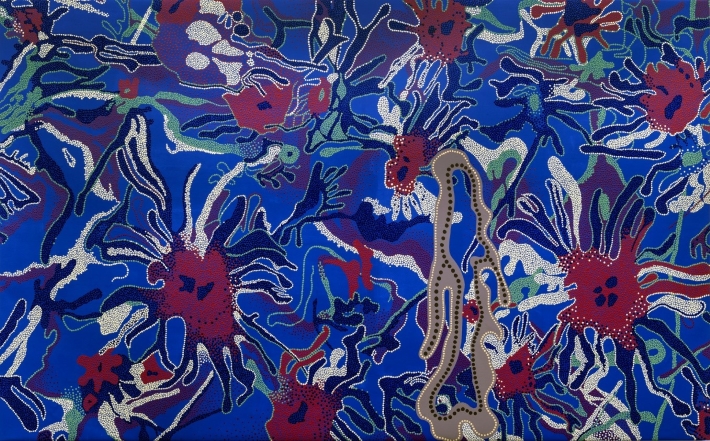The RAP Working Group worked collegially and constructively to develop a plan that was reflective of community concerns and sensitive to local issues and preferences – a process that took almost two years to complete.
What better time to reflect on our achievements in this space than at the end of Reconciliation Week 2021, a week that we commemorated with a series of events.
While we are only the start of our formal RAP journey, UNE as a community can be very pleased with what we have achieved so far, most notably through the formal and informal partnerships we have grown over the past 12 months. It is through these partnerships, 46 and counting, that we work to enhance educational opportunities and outcomes for Indigenous Australians regardless of location. Through a number of experience days and pathways programs, our Engagement Coordinators encourage Indigenous students to see tertiary education through university study as a realistic and attainable gateway in their future.
In addition to growing our partnerships, we have procured goods and services from nine Aboriginal and Torres Strait Islander businesses to the value of $57,750. The target is to expand and extend this commercial dynamic.
The recruitment of a Pro Vice-Chancellor Indigenous was temporarily delayed due to COVID-19 but the process is now back on track and we are hoping to make an announcement about it in the near future.
We have also made sustainable progress in refining UNE’s corporate systems and processes in support of reconciliation objectives. UNE continues to enable an Aboriginal Employment Strategy, and provides training for staff in understanding and appreciation of Aboriginal peoples, their cultures and histories.
The University continues to work towards historical acceptance by identifying cultural heritage sites on University properties and registering them with the NSW Office of Environment and Heritage. The respectful repatriation of Aboriginal ancestral remains and tools to their places of origin remains a priority. In addition, cultural investigations undertaken as a key component for a number of capital projects, including cultural induction ceremonies and protection zones on sites of Aboriginal significance have been embedded into our core business practices.
Below are some of UNE’s main achievements with respect to our acknowledgement of Indigenous cultural and heritage in 2020.
- In 2020, 945 Indigenous students attended UNE with 978 corresponding Indigenous course enrolments. This number is above the mean Indigenous student enrolment (n=881) during the period 2015-2020, and is consistent with a sustained upward trend in Indigenous student enrolments at UNE for much of the last decade.
- Our mean five-year Indigenous student success rate stands at 62.9%, with a slight increase recorded in 2020.
- Thirty-nine students enrolled in Oorala's TRACKS program, comprising 31 commencing and eight continuing students.
- Sixteen Aboriginal and Torres Strait Islander students hoping to commence their studies at UNE applied to the Internal Selection Program (ISP).
- Thirty-four Indigenous students enrolled in our Pathways Enabling Course; of these, 31 were commencing students.
- Of the 945 Indigenous students enrolled at UNE in 2020, 171 (or 18.1%) received tutorial assistance. This is equal to the percentage of students who applied and received tutorial assistance in 2019 (i.e. 175 of 967 students or 18.1%). Altogether, some 6,900 hours of assistance were offered to 171 students at all levels during 2020.
- Seven Indigenous students received offers of admission to the Joint Medical Programme to commence in 2021. This is the highest ever number of offers made to Indigenous students to commence medicine at UNE.
- The Indigenous Student Success Program (ISSP) supported scholarships to the value of $177,000.00.
- Donor scholarships to the value of $67,000.00 and repeat donor scholarships to the value of $21,000.00 supported 13 students with their studies.
- UNE offered Indigenous Higher Degree Research scholarships to the value of $313,060.00 and Indigenous Early Career Fellowships to the value of $304,382.00 to qualifying candidates.
- UNE employed 27 ongoing and 32 casual Indigenous staff members in 2020.
- Indigenous ancestral remains housed in the Cultural Collections of the University were repatriated to Elders of the Dunghutti Nation for later internment on their ancestral grounds.
- UNE music lecturer and composer Dr Paul Smith, and oral historian and multimedia artist Dr Lorina Barker, combined European and Indigenous knowledges and traditions to develop a musical work with input from Aboriginal community Elders from Bourke. The piece is intended as an accompaniment to the UNE Reconciliation Action Plan.


